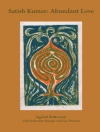In ‘Mary Olivier: a Life, ‘ May Sinclair crafts a poignant semi-autobiographical narrative that immerses readers in the complexities of a woman’s emotional and intellectual evolution during the late Victorian era. Sinclair’s prose is characterized by its modernist sensibilities, utilizing stream-of-consciousness techniques to intricately explore the protagonist’s internal struggles and relationships. Set against a backdrop of societal constraints, the novel delves into themes of identity, feminism, and the quest for autonomy, positioning Mary Olivier as a forerunner of the modern female narrative. May Sinclair, a pioneer of feminist literature and a significant figure in the early 20th-century literary scene, drew on her own experiences as a suffragette and advocate for women’s rights. Her progressive views and deep understanding of psychological intricacies enabled her to create complex characters that defy the conventions of their time. Sinclair’s works often challenge societal norms, and ‘Mary Olivier’ serves as a testament to her commitment to portraying the authentic lives of women, as well as exploring the intersections of art and personal experience. This remarkable novel is highly recommended for readers interested in feminist literature, psychological realism, and those who appreciate a rich, introspective narrative. Sinclair’s ability to weave intricate emotional landscapes makes ‘Mary Olivier: a Life’ an essential read, providing insights not only into the protagonist’s life but also into broader societal changes in women’s roles and identities.
Giới thiệu về tác giả
May Sinclair, born Mary Amelia St. Clair on August 24, 1863, in Cheshire, England, was a pivotal figure in the early 20th century literary scene, known not just for her novels but also for her poetry, criticism, and as an active member of the woman’s suffrage movement. Sinclair’s body of work is notable for its keen psychological insight, a characteristic underscored in arguably her most introspective novel, ‘Mary Olivier: a Life.’ This semi-autobiographical work deftly explores the inner life of a woman in search of personal autonomy and intellectual fulfillment, against the backdrop of the stifling social norms of Victorian England. Sinclair’s literary style, rife with intricate explorations of personal consciousness, aligns her with the stream of consciousness technique, where she’s often cited as one of the early adapters of this narrative style, pre-dating even Virginia Woolf and James Joyce. Her fascination with psychology also saw her engage with psychoanalytic theories, which she applied to character development within her novels. Sinclair was prolific in her lifetime, contributing significantly to the development of the modernist novel. Her works stand out not only for their literary merit but also for the light they shine on the challenges and aspirations of women in her era.












